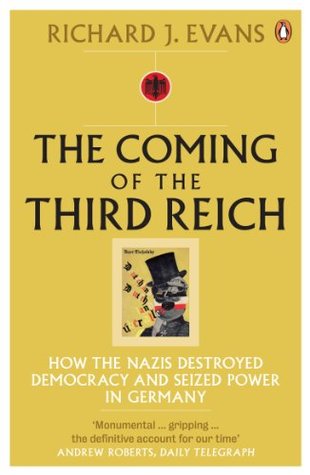More on this book
Community
Kindle Notes & Highlights
By the eve of the First World War, the use of German was mandatory in public meetings throughout the Reich, and land laws were being reformed in such a way as to deprive the Poles of their fundamental economic rights.33 The notion that ethnic minorities were entitled to be treated with the same respect as the majority population was a view held only by a tiny and diminishing minority of Germans.
These tensions found release in an increasingly vociferous nationalism, mixed in with alarmingly strident doses of racism and antisemitism, which were to leave a baleful legacy for the future.
By 1930 at the latest, it had become clear that the Presidential power was in the hands of a man who had no faith in democratic institutions and no intention of defending them from their enemies.
Anyone who wanted to buy a dollar in January 1923 had to pay over 17,000 marks for it; in April 24,000; in July 353,000. This was hyperinflation on a truly staggering scale, and the dollar rate in marks for the rest of the year is best expressed in numbers that soon became longer than anything found even in a telephone directory: 4,621,000 in August; 98,860,000 in September; 25,260,000,000 in October; 2,193,600,000,000 in November; 4,200,000,000,000 in December.
Yesterday I waited for money in the university cashier’s office the whole morning up to almost 2 o’clock and in the end I didn’t get a penny, not even what was left from the October payment, since the dollar rose yesterday from 65 to 130 billion, so today I will have to pay my gas bill and other things at twice yesterday’s price. In the case of gas that is likely to make a difference of a good 150 billion.
The roots of the Nazis’ success lay in the failure of the German political system to produce a viable, nationwide conservative party uniting both Catholics and Protestants on the right; in the historic weakness of German liberalism; in the bitter resentments of almost all Germans over the loss of the war and the harsh terms of the Treaty of Versailles; in the fear and disorientation provoked in many middle-class Germans by the social and cultural modernism of the Weimar years, and the hyperinflation of 1923. The lack of legitimacy of the Weimar Republic,


